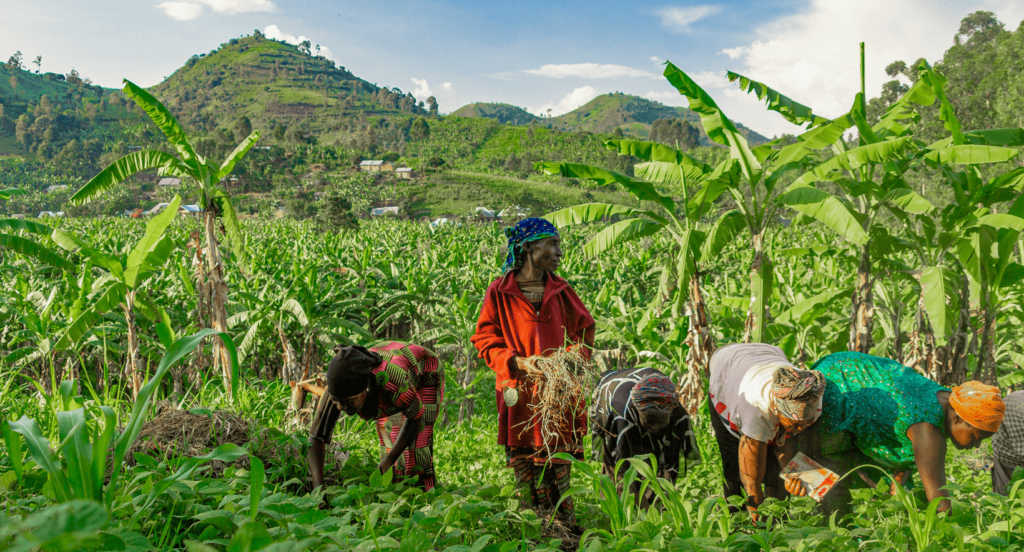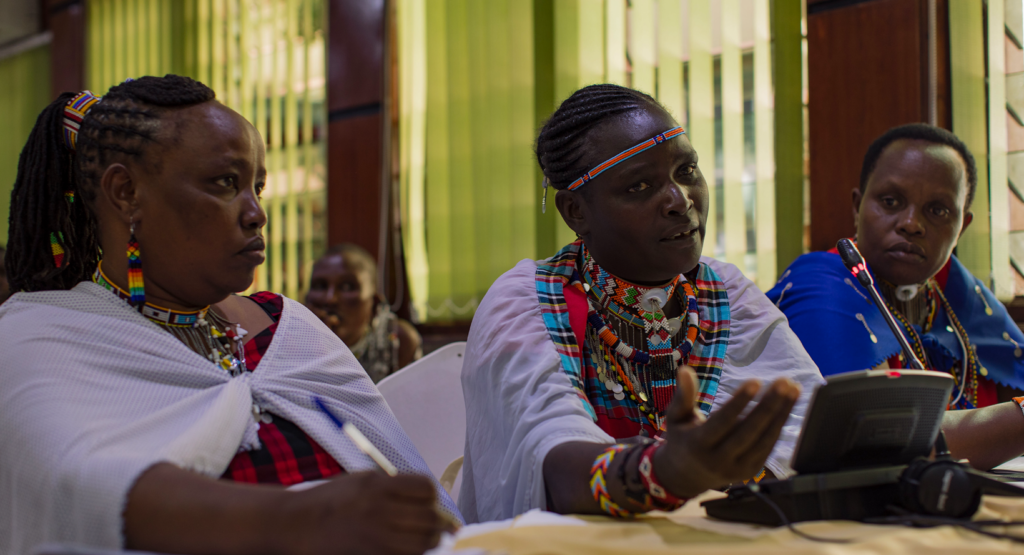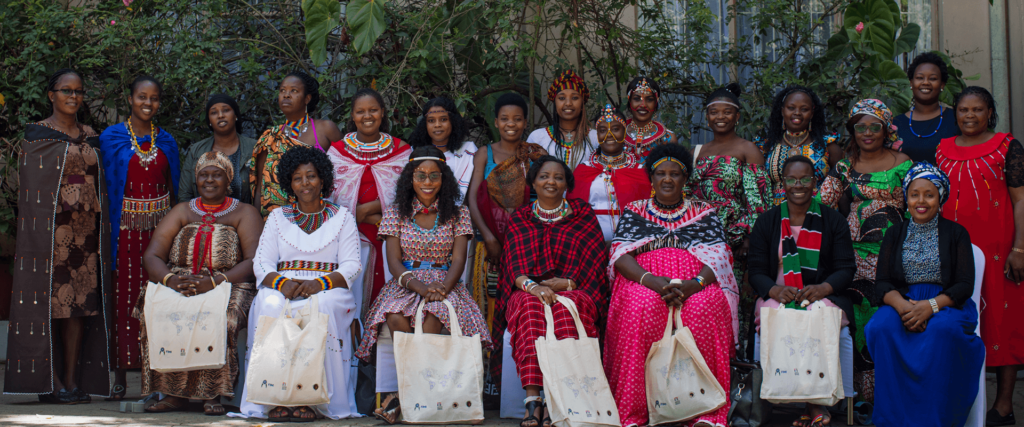
Lucy Mulenkei, an Indigenous Masai from Kenya and one of the founders, explains:
“We were listening to the good stories from Latin America, from Asia, and we had voices from there, but for us we didn't have the voices”.
AIWO enabled them to come together to promote women’s and indigenous peoples’ rights in Africa and thus empower themselves socially, politically and economically.

AIWO enabled them to come together to promote women’s and indigenous peoples’ rights in Africa and thus empower themselves socially, politically and economically.
For this reason, it is important for Lucy to create networks of women to discuss challenges and find solutions, regardless of their place of origin, since they have found common ground all over the world. Through dialogue, plans are developed to address these issues. In a certain way, the roots of the trees to which Lucy refers must connect to support each other, regardless of borders.
“That is why the AIWO women try to have a global school so that they can train their young women and even other women there. In order for them to learn and know what aspects to improve, they must work with their own communities. To highlight some of the issues and try to get strategies on how to go along with them”.


Lucy, through her collective work with other women around Africa, detected that the challenges facing their communities are related to climate change, such as droughts and the loss of biodiversity:
“It is a call for women to see and develop strategies or mechanisms on how to deal with and adapt to climate change”
For this it is crucial to work collectively, it is also important that women know their rights to exercise them.
To continue with community development, it is necessary for today's leaders to also be role models for younger women, Lucy believes, since the latter will be able to continue working to progress in their own lives and in their communities.
Her experience has taught her that patience, listening and sharing are very important things to achieve development, because only then will we be able to move forward.
Looking to the future, Lucy believes it is important to focus on the young women she has been working with so that they can continue and thrive in their own communities. She sees that these women are moving forward and receiving accompaniment, working in different areas and supporting each other. For Lucy, AIWO is like a flower that continues to bloom and a tree that continues to generate different leaves and branches, without fading or dying. She sees a bright future for AIWO and for the Indigenous Women of Africa who continue to fight for their rights and the development of their communities.
Since its founding, AIWO has integrated women like Winnie Kodi, originally from the Uba indigenous people of Sudan: "Now women are talking about the effects of climate change and how it affects Indigenous Women."

She highlights the involvement of women in the implementation of adaptation and mitigation strategies in their countries, where they see for themselves.
“We have groups that do tree planting activities as part of their identity and efforts to reforest the area. So those who live in the forests and those who don't are encouraged to plant and build”
Winnie is another of the many voices in AIWO. She and her community organization advocate for women to strengthen skills that allow them to empower themselves economically, as well as their families. She shares: “Indigenous Women are brilliant, they just don't have the space or opportunity to show it, to use their brilliant nature to do something for themselves.”
When they have the opportunity, they have managed to ensure that their sons and daughters can go to school and receive medical attention. However, they still face the serious problem of female genital mutilation, a harmful practice in the name of tradition, which must be eradicated. To accomplish this, we emphasize teaching women's sexual and reproductive rights.
When they have the opportunity, they have managed to ensure that their sons and daughters can go to school and receive medical attention. However, they still face the serious problem of female genital mutilation, a harmful practice in the name of tradition, which must be eradicated. To accomplish this, we emphasize teaching women's sexual and reproductive rights.
Winnie, who participated in IIWF's first Global School of Leadership and later became an academic advisor, strongly believes in the opportunities that Indigenous Women and Girls can find by being part of a global network. In her words, "by joining a network, they can benefit from the opportunities that arise, and when they are called up globally, we can share that with the networks that we have already extended to some of the organizations that we know have powerful Indigenous Women or Girls that will benefit from global leadership”.

Finally, she mentions that the forums allow them to discuss solutions at different levels: local, national, regional and international, and to plan how to act. In her words:
We have a whole document outlining the different issues Indigenous Women in Africa face and what they would like to do about it.
“WE ARE IN DIFFERENT CONTEXTS OR GEOGRAPHIES”




